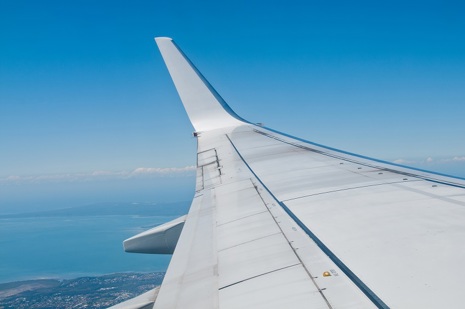
An effective and independent airports economic regulator is vital for realizing the Government’s vision of 100 new airports to be built over the next 10 years.
An independent economic regulator for airports plays an important role as a custodian of consumer interest by regulating natural monopolies. The regulator determines tariff in a predictable manner in accordance with its regulatory philosophy – taking into consideration aspects such as the rate of return that will be allowed, determination of the regulatory asset base, separation of airport assets and costs etc.
The Airports Economic Regulatory Authority (AERA) (Amendment) bill that was recently passed by the Indian Parliament takes away from AERA the key roles that it performs – tariff determination and upholding the consumer interest. The insertions in section 13 of the Act will cause AERA to dispense with its oversight of determining the airport tariff if the tariff has already ‘been incorporated in the bidding document’.
The amendment bill enables the awarding of airports on the basis of ‘pre-determined’ tariff. However, it does not take into account that while the ‘pre-determined’ transaction structure for airports was conceived by the Ministry of Civil Aviation (MOCA), it was dispensed with after recognizing its shortcomings. Just look at the concession model for the six airports awarded in February 2019 which received an enthusiastic response from the private sector, as these were not bid on the basis of ‘pre-determined’ tariffs. Three amongst these – Ahmedabad, Lucknow and Mangalore airports have now received the Union Cabinet’s nod for awarding to the highest bidder, M/s Adani Enterprises Ltd. The structure in this concession award was based on a ‘per-passenger fee’ bid, where most importantly, AERA continues its role of economic oversight and tariff determination for these airports.
This welcome change in approach by MOCA recognizes that pre-determination of tariff deviates from the International Civil Aviation Organization’s (ICAO) most basic principle that there should be a relation between costs and charges. Pre-determination could lead to a situation in which consumers are excessively charged for the services being offered. Moreover, with pre-determined tariff – if enabled on the back of the AERA (Amendment) Bill – the charges yield has no correlation to actual capital investments in the airport, and therefore the airport operator has limited incentives to make appropriate investments or upgrade technology to improve efficiency for customers and consumers. Additionally, without appropriate construction and development KPIs being in place, the airport operator would be incentivized to limit capital expenditure to maximize returns on the back of ‘pre-determined’ tariff. This is not in the interests of passengers, airlines, or the government.
The amendment bill also increases the passenger threshold for defining what is a major airport, from the current 1.5 million to 3.5 million passengers per annum. This will remove some key airports from AERA’s ambit, such as Amritsar, Calicut, Nagpur and Srinagar amongst many others. Again, the correct approach should have been to allow the independent regulator to decide the best form of regulation at these airports.
AERA has played a significant role in moderating costs in India’s high-cost aviation environment. Since 2008, AERA has set in place a comprehensive and thorough methodology for economic regulation of Indian airports. This guarantees the regulated airports with a fair rate of return on their investment, while also safeguarding consumer interest. AERA has brought transparency through its protocols of publishing minutes, consultation documents and Orders. The protocols too have evolved and involves extensive consultation with industry stakeholders, including consumers, airports and airlines, to have a voice in what was previously an opaque exercise in tariff setting.
AERA’s tariff orders in recent years have reduced charges in Delhi, Hyderabad, Bangalore, Chennai among others, compared to the tariff that was being sought by the airport operators – thereby benefiting passengers and airport users. The Delhi airport operator’s over recoveries in excess of Rs 5,000 crores in its second tariff-control period (2014-2019), will also be adjusted suitably by AERA in the 2019-2025 tariff award – a win for all airport users!
Despite its short 10-year history, AERA has established a proven track-record of significant consumer savings and upholding the public interest through its Tariff orders. The government should not be detracted in further strengthening AERA and investing in its institutional capacity. There have of course been the familiar bogies undermining AERA’s role – like increase in litigation; private airport interest in PPPs waning; frequent swings in airport charges etc. But the experience of the last decade has firmly laid these to rest.
AERA has improved predictability around airport tariffs and signaled airport operators through its improved economic oversight. As a custodian of passenger interest, AERA has come a long way – benefiting greatly from the efforts of the institution’s Chairpersons, its Members, Secretaries and staff.
A stronger and independent airports economic regulator is therefore vital for realizing the Government’s vision of building new airports over the next decade – and for India’s emergence as the 3rd largest aviation market in the world.